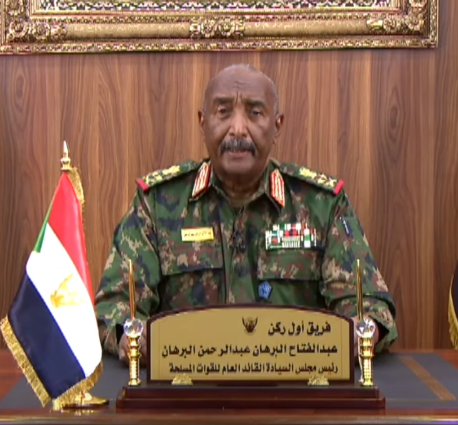Reports
Can the Constitutional Document Be Amended Without a Legislative Council?

Cairo – Al-Muhagig – Sabah Musa
A committee formed by Sudanese sovereign bodies is currently working on amending the constitutional document signed between the military component (the Armed Forces – Rapid Support Forces) and the civilian component (Forces of Freedom and Change and other civil, religious, and union components) following the December 2018 Revolution. The amendments also include parties from the Juba Peace Agreement, with the aim of appointing a new Prime Minister for the country.
Amending the Document
The proposal to amend the constitutional document comes after some of its provisions were frozen on October 25, 2021, following the withdrawal of the Forces of Freedom and Change (FFC) from governing the country. Some view these amendments as unconstitutional in the absence of a legislative council or all signatory parties. So, to what extent can the military and legal committee tasked with these amendments proceed in the absence of competent parties? And can the provision for appointing a Prime Minister be exempted, given the current circumstances and the inability to achieve consensus while the war continues?
Not Feasible
Sudanese constitutional expert and head of the investigation committee into the sit-in dispersal, Nabil Adib, stated that the constitutional document cannot be canceled or amended without the existence of a subsidiary legislative authority, represented by the Legislative Council. Speaking to Al-Muhaqiq, Adib explained that the Legislative Council has not been formed, and there is now a necessity to amend the document. However, he noted that the authorities empowered to amend it under the document no longer exist.
Adib further explained that the appointment of a Prime Minister was previously carried out by the Forces of Freedom and Change, which no longer exists in its previous political and civil structure. He stressed the need to assemble the components mentioned in the constitutional document to form the Legislative Council. The document stipulated that this council should be formed within 90 days of signing, but this period has lapsed. He added that until the council is formed, its tasks and powers are to be carried out by a joint meeting of the Sovereignty Council and the Council of Ministers. However, this substitute is not suitable for amendments, as Article 78 of the document states that amendments or cancellations can only be made by a two-thirds majority of the Legislative Council. Adib emphasized that the continuation of war and the lack of stability make the situation unworkable.
Emergency Circumstances
Adib also noted that this discussion is not about a “war government” but about a constitutional government. He stressed the need to end the war and eliminate the presence of the Rapid Support Forces. In any constitutional system, there should be a single armed force. He argued that under emergency circumstances, agreement on a single clause—appointing a Prime Minister—might be achievable. However, amendments should not be carried out by a single entity. Instead, in the absence of the Legislative Council, such decisions should be made through a Sudanese-Sudanese dialogue that excludes no one. This would require overcoming criminal accusations to reach an agreement, a difficult task given the current accusations.
Adib noted that the Civil Forces Coordination “Taqaddam” has split into two factions: one has excluded itself by calling for a parallel government in areas controlled by the Rapid Support Forces, while the other accepts dialogue as a means to achieve stable governance. He emphasized that war is an exceptional circumstance, and drafting a constitution during its continuation is impossible. Adib concluded that while proposals to amend the document and reach consensus are necessary, direct amendments remain challenging. Appointing only a Prime Minister might be feasible, but comprehensive amendments to the document are unlikely at this stage.
Amendments Are Possible
Meanwhile, the head of the National Mobilization Forces, Dr. Tijani Sissi, stated that the parties to the constitutional document include the Armed Forces, the Rapid Support Forces, the Forces of Freedom and Change, and the Council of Ministers. Speaking to Al-Muhaqiq, Sissi pointed out that the remaining parties are the Armed Forces and the Council of Ministers. He suggested that these two parties could amend the document as deemed constitutionally appropriate.
Sissi argued that the document requires several amendments, particularly regarding references to the Forces of Freedom and Change and the formation of the government, which should consist of technocratic ministers. He stressed the necessity of having a government, adding that the lack of a strong government has weakened the state. Forming a government now is essential, he said, as it would enhance regional and international recognition and improve executive performance significantly. Sissi highlighted that political forces have been calling for the formation of a government for over six months, making this step urgent at present.
Source: Al-Muhaqiq News



